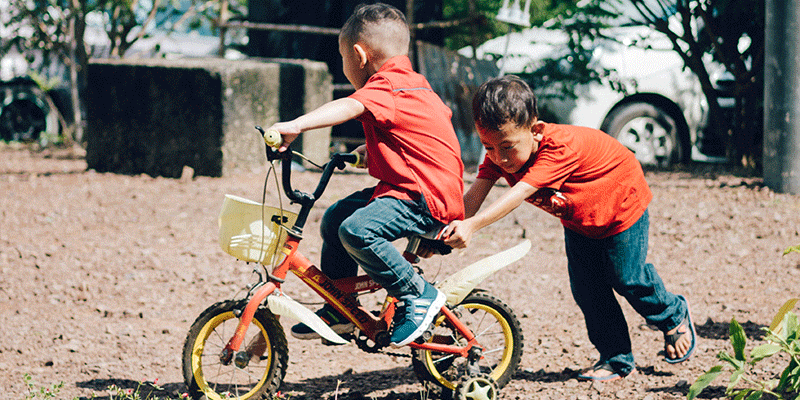
Because children this age have so little awareness of the feelings of others, they can be very physical in their responses to the children around them. Even when just exploring or showing affection, they may poke each other’s eyes or pat a little too hard. (The same is true of their treatment of animals.) When they’re upset, they can hit or slap without realizing they are hurting the other child. For this reason, be alert whenever your toddler is among playmates, and pull him back as soon as this physical aggressiveness occurs. Tell him, “Don’t hit,” and redirect all the children to friendlier play.
Fortunately, your toddler will show his self-awareness in less aggressive ways, as well. By eighteen months, he’ll be able to say his own name. At about the same time, he’ll identify his reflection in the mirror and start showing a greater interest in caring for himself. As he approaches age two, he may be able to brush his teeth and wash his hands if shown how to do it. He’ll also help dress and, especially, undress himself. Many times a day you may find him busily removing his shoes and socks even in the middle of a store or the park.
Because your toddler is a great imitator, he will be learning important social skills from the way you handle conflicts between the two of you. Model for him the way words and listening can, at least on occasion, be used to resolve conflicts (“I know you want to get down and walk, but you must hold my hand so I know you’re safe”). As an imitator, he also will eagerly participate in anything you’re doing around the house. Whether you’re reading the paper, sweeping the floors, mowing the lawn, or making dinner, he’ll want to “help.” Even though it may take longer with him doing so, try to turn it into a game. If you’re doing something he can’t help with because it’s dangerous or you’re in a hurry, look for another “chore” he can do. By all means, don’t discourage these wonderful impulses to be helpful. Helping, like sharing, is a vital social skill, and the sooner he develops it, the more pleasant life will be for everyone.
Last Updated 11/2/2009
Source Caring for Your Baby and Young Child: Birth to Age 5 (Copyright © 2009 American Academy of Pediatrics)
The information contained on this Web site should not be used as a substitute for the medical care and advice of your pediatrician. There may be variations in treatment that your pediatrician may recommend based on individual facts and circumstances.






